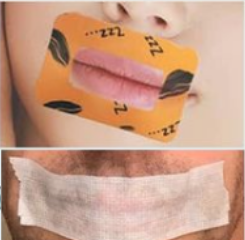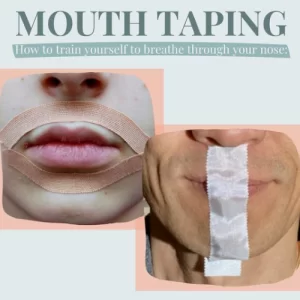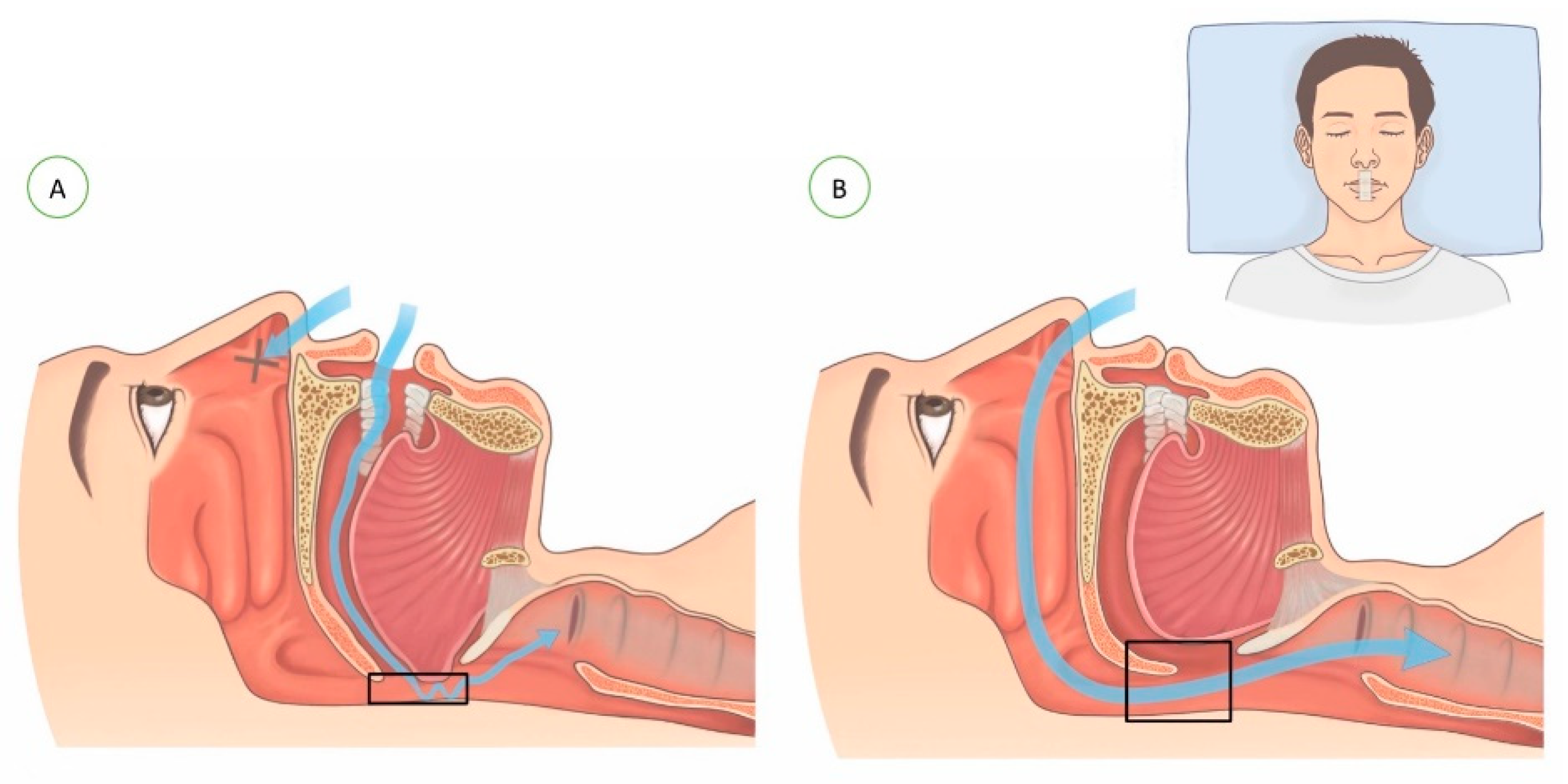 I’ve encountered numerous unique wellness trends through my decade-plus experience as a hormone, gut-health and sleep specialist. One such trend gaining prominence is ‘Mouth Taping’ – a practice where you tape your mouth shut during sleep. Despite its seemingly drastic nature, many individuals, including my patients, claim its effectiveness, making it a popular topic in the health and wellness community. This article will familiarise you with its advantages, proper techniques, and help decide whether mouth taping should be incorporated into your regular sleep routine.
I’ve encountered numerous unique wellness trends through my decade-plus experience as a hormone, gut-health and sleep specialist. One such trend gaining prominence is ‘Mouth Taping’ – a practice where you tape your mouth shut during sleep. Despite its seemingly drastic nature, many individuals, including my patients, claim its effectiveness, making it a popular topic in the health and wellness community. This article will familiarise you with its advantages, proper techniques, and help decide whether mouth taping should be incorporated into your regular sleep routine.
Advantages Of Mouth Taping: It’s remarkable how just a small piece of tape can have significant health benefits. Discover the reported benefits of this practice, as sometimes the tiniest changes can yield the most substantial results:
 Helps Reduce Snoring: Approximately 25% adults experience regular snoring during sleep, while occasional snoring affects up to 45% of adults. Snoring tends to be more prevalent among men, individuals who are overweight, and those diagnosed with sleep apnea (discussed in previous articles). By taping your mouth shut during sleep, you encourage nasal breathing, which helps prevent air from passing through the mouth and causing snoring. This promotes healthier airflow and can minimize snoring episodes, leading to quieter and more restful sleep.
Helps Reduce Snoring: Approximately 25% adults experience regular snoring during sleep, while occasional snoring affects up to 45% of adults. Snoring tends to be more prevalent among men, individuals who are overweight, and those diagnosed with sleep apnea (discussed in previous articles). By taping your mouth shut during sleep, you encourage nasal breathing, which helps prevent air from passing through the mouth and causing snoring. This promotes healthier airflow and can minimize snoring episodes, leading to quieter and more restful sleep.
Helps Reduce Sleep Apnea: Sleep apnea is a sleep disorder marked by frequent breathing interruptions during sleep, often accompanied by symptoms like snoring and persistent fatigue. The standard treatment for sleep apnea involves using a continuous positive airway pressure (CPAP) machine to keep the upper airway open during sleep. However, mouth taping has emerged as a more effective and comfortable alternative for managing sleep apnea. By keeping the airways open, mouth taping helps prevent breathing pauses, offering relief from the condition.
Improving Your Sleep Quality: Regardless of whether you suffer from sleep apnea, scientific evidence demonstrates that nasal breathing, as opposed to mouth breathing, enhances the quality of sleep. It reduces the frequency and duration of sleep disturbances, leading to improved overall sleep quality.
Reduces Dry Mouth (On Waking Up) And Risk Of Possible Dental Problems: If you wake up with a dry, irritated throat each morning, it’s likely an indication that you breathe through your mouth during sleep. Unlike nasal breathing, which benefits from the added moisture provided by the sinuses, mouth breathing fails to provide this natural humidification. By using mouth tape during sleep, you can prevent these unpleasant symptoms. Mouth dryness also alters the acidity levels in saliva, disrupting the pH balance within the oral cavity, causing a more corrosive environment that increases the risk of oral health problems and dental issues like tooth decay, gum disease.
Choosing The Right Tape For Mouth Taping: When engaging in mouth taping, it’s crucial to select a tape that’s gentle on the skin and unlikely to cause irritation, considering that it will be used for an extended period. As the popularity of mouth taping grows, more brands are introducing tapes explicitly designed for overnight use. Alternatively, surgical tape can be utilized due to its hypoallergenic properties and easy removal.
Regardless of the type chosen, it is advisable to test it on the skin during the day to ensure it does not cause any discomfort or irritation. It’s also important to exercise caution and avoid taping the mouth too tightly, as this could pose risks. The tape should be securely applied but not excessively tight to withstand slight movements without detaching.
 It is important to note that individual experiences may vary. What works for one person may not necessarily work for another due to unique physiological and health considerations. Therefore, it’s important to approach mouth-taping with caution and make informed decisions based on personal circumstances.
It is important to note that individual experiences may vary. What works for one person may not necessarily work for another due to unique physiological and health considerations. Therefore, it’s important to approach mouth-taping with caution and make informed decisions based on personal circumstances.
Note: You are recommended to consult with a healthcare professional, such as a physician or sleep specialist, before embarking on any new practices or treatments. They assess your specific health situation, evaluate potential risks, and provide personalized advice, tailored to your needs. Your healthcare provider will consider factors such as underlying medical conditions, medication use, and individual sleep patterns to determine whether mouth taping is a suitable choice for you.
- તમે ઇન્જેક્શન આપેલા તરબૂચ તો નથી ખાઈ રહ્યા ને? - 27 April2024
- પિતાના હાથની છાપ.. - 27 April2024
- વિસ્પી ખરાડી ફિટ ઈન્ડિયા મૂવમેન્ટનાબ્રાન્ડ એમ્બેસેડર તરીકે નિયુક્ત - 27 April2024
